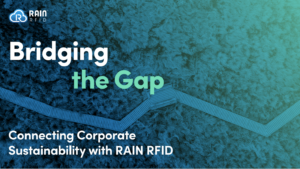9 April 2024 – RAIN Alliance, the non-profit member organization supporting the development and adoption of Ultra High Frequency (UHF) Radio Frequency Identification (RFID), has today released the inaugural report from its Sustainability Working Group, exploring emerging sustainability use cases of RAIN. The findings show that end users of RAIN across various industries are beginning to unlock the technology’s hidden potential to help them meet their sustainability goals.
Across a range of global in dustries, growing regulatory pressure to disclose climate risks and provide supply chain transparency is forcing organizations to investigate how they can improve efficiency, traceability and drive more sustainable operations. The new RAIN Alliance report, entitled ‘Bridging the Gap – Connecting Corporate Sustainability with RAIN’ highlights how RAIN data is starting to help companies meet this urgent, unmet need.
dustries, growing regulatory pressure to disclose climate risks and provide supply chain transparency is forcing organizations to investigate how they can improve efficiency, traceability and drive more sustainable operations. The new RAIN Alliance report, entitled ‘Bridging the Gap – Connecting Corporate Sustainability with RAIN’ highlights how RAIN data is starting to help companies meet this urgent, unmet need.
“We’re now seeing a rapid proliferation of applications for RAIN across aviation, logistics, retail, automotive, manufacturing, healthcare and other sectors, with many organisations deploying the technology as part of their sustainability strategies,” comments Aileen Ryan, President and CEO of RAIN Alliance. “As global regulations ramp up, companies are reorganising operations in line with their sustainability goals. It’s early days, but data collected from RAIN deployments is already proving valuable in helping businesses achieve more efficient, sustainable operations.”
While organizations are increasingly harnessing their existing use of RAIN to drive sustainability, the report acknowledges that the practice remains in its infancy. Unsurprisingly, surveyed members indicate that those with longer-standing RFID implementations are also further along in this journey. Just 18% of those with less than three years in RFID report integration with their sustainability teams. This figure rises, however, to 80% for those that have used the tech for five or more years. These figures suggest a maturity curve, where organizations initially deploy RAIN in support of core business objectives and then explore sustainability use cases over time.
Ryan adds: “There are huge opportunities for organizations to repurpose existing RAIN data to support their sustainability goals. Departmental silos remain a problem, however. If these can be overcome to enable RAIN data to be shared more broadly across the enterprise, a new era of data-driven sustainability decision-making can begin.”
Surveyed RAIN Alliance RFID users ranked ‘improving supply chain traceability’ as their company’s top sustainability priority. More than a quarter of respondents (26%) identified ‘traceability regulations’ as the most relevant to their business and almost half (47%) see ‘traceability’ as an important regulatory driver.
In addition to using RAIN location data to optimize supply chains thereby achieving massive reductions in waste, RAIN tags can also hold data relative to when a product was manufactured, the materials used, and its anticipated lifespan. Companies can use this information to improve traceability, inform decisions about refurbishment, reuse, and renting, and how to sustainably manage the product’s ‘end-of-life’. Businesses are also exploring other RAIN sustainability use cases, such as sorting and recycling or collecting environmental data to track and report on CO2 reduction.
The wide range of emerging use cases for RAIN is driving rapid global adoption of the technology; shipments of RAIN tag chips surged to 44.8bn in 2023, representing year-on-year growth of 32%. As more organizations adopt the technology, both the usage and value of RAIN data is expected to grow in support of both sustainability and, ultimately, the creation of truly circular economies.
The full survey findings and more information on RAIN’s role in driving sustainability can be found in the RAIN Alliance’s recent report, ‘Bridging the Gap – Connecting Corporate Sustainability with RAIN’.
Note: The RAIN Alliance survey was open to both members and organizations currently using RFID in the following industries: apparel, food, logistics, manufacturing, automotive, beauty and healthcare. A total of 145 companies responded to the survey, 75% of whom were end-users of RAIN. The remaining 25% were RAIN members involved with the manufacturing and/or sale of RAIN technology.
